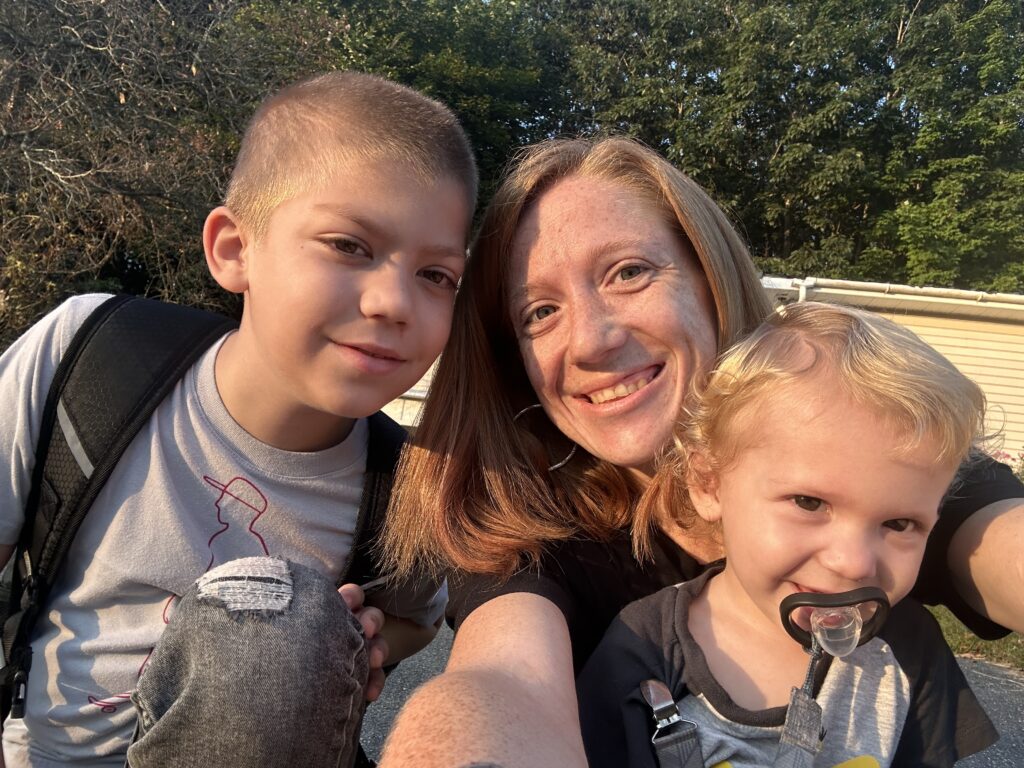Why You Should Help Your Child Set Goals
December 19, 2023

Setting and achieving goals is an important life skill for kids to learn. As we near the end of 2023, you’re likely thinking about your own goals – maybe you set some goals or New Year’s resolutions at the beginning of the year or are actively working towards achieving something right now. Setting goals and working towards achieving them is just as important for children as it is for adults. Setting goals and working towards them (and hopefully reaching them) teaches kids discipline, instills good habits, and teaches them how to take responsibility for themselves. But how can you help kids set and achieve their goals? Goal setting is an area in which many adults struggle too, so today we’re tackling the subject.
If you’ve ever set a sky-high New Year’s resolution only to have your motivation fizzle out by January 31st, you may already have an inkling that setting HUGE goals can be problematic. Running a 10K when you’ve never liked running could be setting yourself up for disappointment. But walking 10K steps a day when you already cherish your daily stroll? Achievable! The key is making your goals fun and in-line with yourself, and the same goes for kids’ goals. Research shows that children learn best when they’re engaged in play and enjoying themselves (sound familiar?) and the same goes for adults!
So, how do you help your child set and achieve their goals?
As 2024 nears and you’re thinking about your own goals for the year to come, have a conversation with your kiddo about choosing a couple of big-G Goals to work towards themselves. Asking questions like, “What would you do if you knew you couldn’t fail?” and “What’s something you’d like to achieve this year?” can help your child think about the year to come and where they hope to be by this time next year. Maybe they want to make the jump from picture books to chapter books, or try out for a new sports team. Asking them questions can help them narrow down their goals. Make it a family activity by having them ask you the same questions and sharing about your own hopes for the year – remember to stay positive and not engage with negative self-talk (we recommend avoiding conversations about weight loss and appearance). While you’re both thinking about your goals, be sure to think about the WHY behind them. Thinking about a greater purpose behind each goal can provide more motivation and drive to achieve them.
Break out the “goal ladder”
The next step in setting goals is to figure out just HOW you and your child will achieve your goals. It helps to break goals down into achievable steps – what we like to call a goal ladder. List the goal at the top of your “ladder” (it can just be a list or you could draw a ladder!), and then break down your goal into steps. For example, if your child wants to start reading more advanced books, you could list a bigger book at the top as their “goal book” to read, and then create a list of books to read to get there.
Think about road blocks
Anyone who has set a goal before knows that there will likely be obstacles that pop up as you work towards that goal. Sometimes those obstacles are small, and other times they may be large, which makes it important to consider what could come up on the journey towards achieving them. Planning for challenges and brainstorming ways to overcome them ahead of time can actually improve the likelihood of reaching your goals. So, while you’re discussing your goals with your child, be sure to have them consider obstacles and solutions to those obstacles, too.
What if they want to give up?
We’ve all given up on a goal before. It starts to feel overwhelming or one of many obstacles pop up and we throw in the towel. It happens! But it’s important to persevere as much as possible and stay loyal to the goal, especially when it comes to children’s goals. Remember, goal setting teaches discipline! So, when the goal begins to lose its sheen, sit down with your kiddo and talk through the following:
- Remind your child of why they set their goal in the first place. This is why it’s so important to write down the goal and the reasons WHY they wanted to set the goal. Look back on those reasons for a boost of motivation.
- Look back on the plan and adjust as necessary. If an obstacle has popped up, help them work through it.
- Celebrate their progress! It’s easy to focus on the “I can’t” of it all, instead take a look at what’s already been accomplished.
- Engage in positive self-talk. Instead of focusing on what went wrong, help your child think positively about themselves with statements such as, “I’m strong”, “I can do this”, and “I’m a hard worker”.
- Provide them examples of your own setbacks and struggles you had when you were their age.

 BACK
BACK